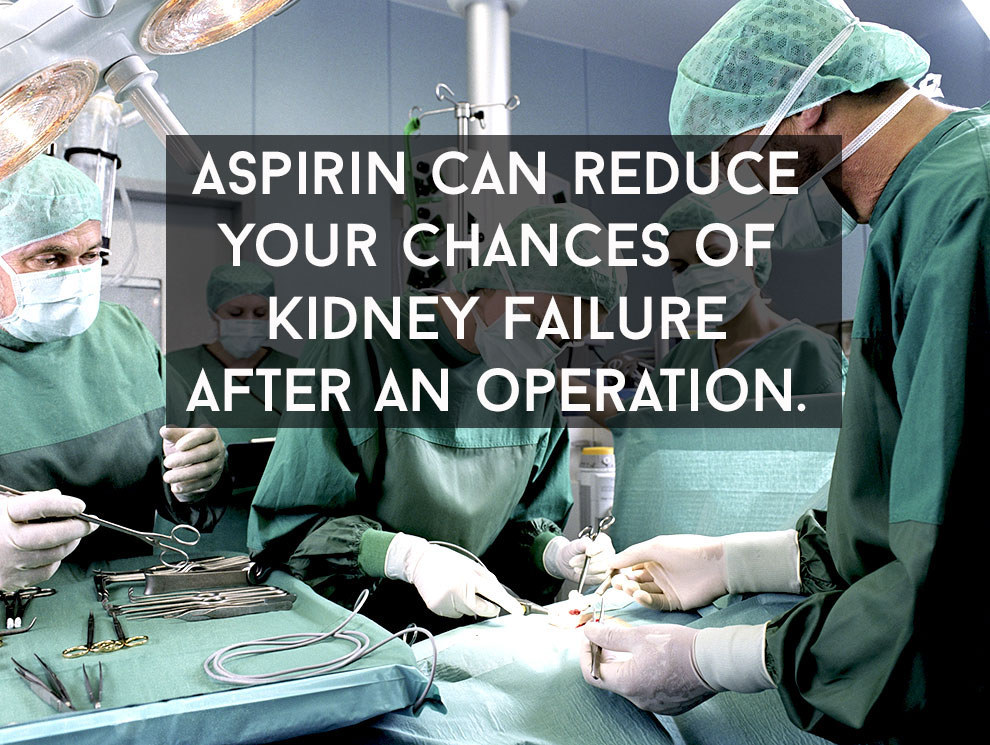
Evidence suggests that aspirin can improve cancer patients' chances of survival. A study presented at the European Cancer Congress has found that people with various kinds of gastrointestinal cancers are twice as likely to live for five years after diagnosis if they take aspirin rather than a placebo.
The study at Leiden University in the Netherlands found the effect in patients with stomach cancer, colorectal cancer, and oesophageal cancer.
Dr Áine McCarthy, Cancer Research UK's science information officer, said in a statement: "This study suggests it could help improve survival for patients with tumours in their digestive system if they take the drug after being diagnosed. More research will help us find which patients might benefit from this."
However, McCarthy also warned that aspirin "can have serious side effects like internal bleeding, so cancer patients shouldn't take it without talking to their doctor first".
The Leiden study is some of the strongest evidence so far that aspirin is useful in treatment of cancer patients.
However, it isn't the first study to suggest that aspirin may be able to treat major health problems. Here are eight others.

1. Aspirin may be able to prevent cancers.
Last week the US Preventive Services Task Force, an expert panel involved in the development of medical policy, released draft recommendations saying some patients in their fifties ought to take a low dose of aspirin to reduce their risk of developing colorectal cancers, although those recommendations are not yet in place. Various trials, including a 2011 meta-analysis, have shown that aspirin can reduce the risk of colorectal cancers (and, perhaps, oesophogeal and stomach cancers) in some patients.
2. Aspirin can improve your chances of surviving a heart attack.
The NHS recommends that if you are worried that you may be having a heart attack, and if you have aspirin easily available, you should take it (preferably a chewable 300mg tablet) while you're waiting for the ambulance.

3. Aspirin can reduce your chances of having another heart attack.
The US Food and Drug Administration says that for some people who've had a heart attack in the past, a low dose of aspirin can reduce the chances of having another one.
4. Aspirin can reduce the risk of having a stroke, in patients who’ve already had one.
The National Institute for Health and Clinical Excellence (NICE) recommends that most people who have had a suspected mini-stroke or a stroke should take 300mg of aspirin daily to reduce the likelihood of it happening again.
5. Aspirin reduces the risk of kidney failure in people who’ve had heart surgery.
Surgery on your heart puts huge stress on the kidneys – up to a third of heart surgery patients suffer kidney failure afterward. One study suggests that a short course of aspirin before the surgery reduces the risk of kidney failure by as much as 50%.

6. Aspirin can reduce the symptoms of the autoimmune disease lupus.
Lupus erythematosus is a disease in which the immune system attacks the body's joints and other tissues. In some patients, aspirin can be used to reduce the inflammation.
7. Aspirin can reduce joint inflammation in arthritis.
The symptoms of rheumatoid arthritis and osteoarthritis can both be managed with aspirin or other non-steroidal anti-inflammatory drugs (NSAIDs), although NICE recommends that ordinary painkillers such as paracetamol be tried first.
8. Aspirin can reduce the risk of blood clot problems after surgery.
The American College of Chest Physicians and the American Academy of Orthopaedic Surgeons both recommend aspirin after certain surgeries, to prevent the risk of problems such as deep-vein thrombosis, and a review last year suggested that NICE in Britain should do the same.
